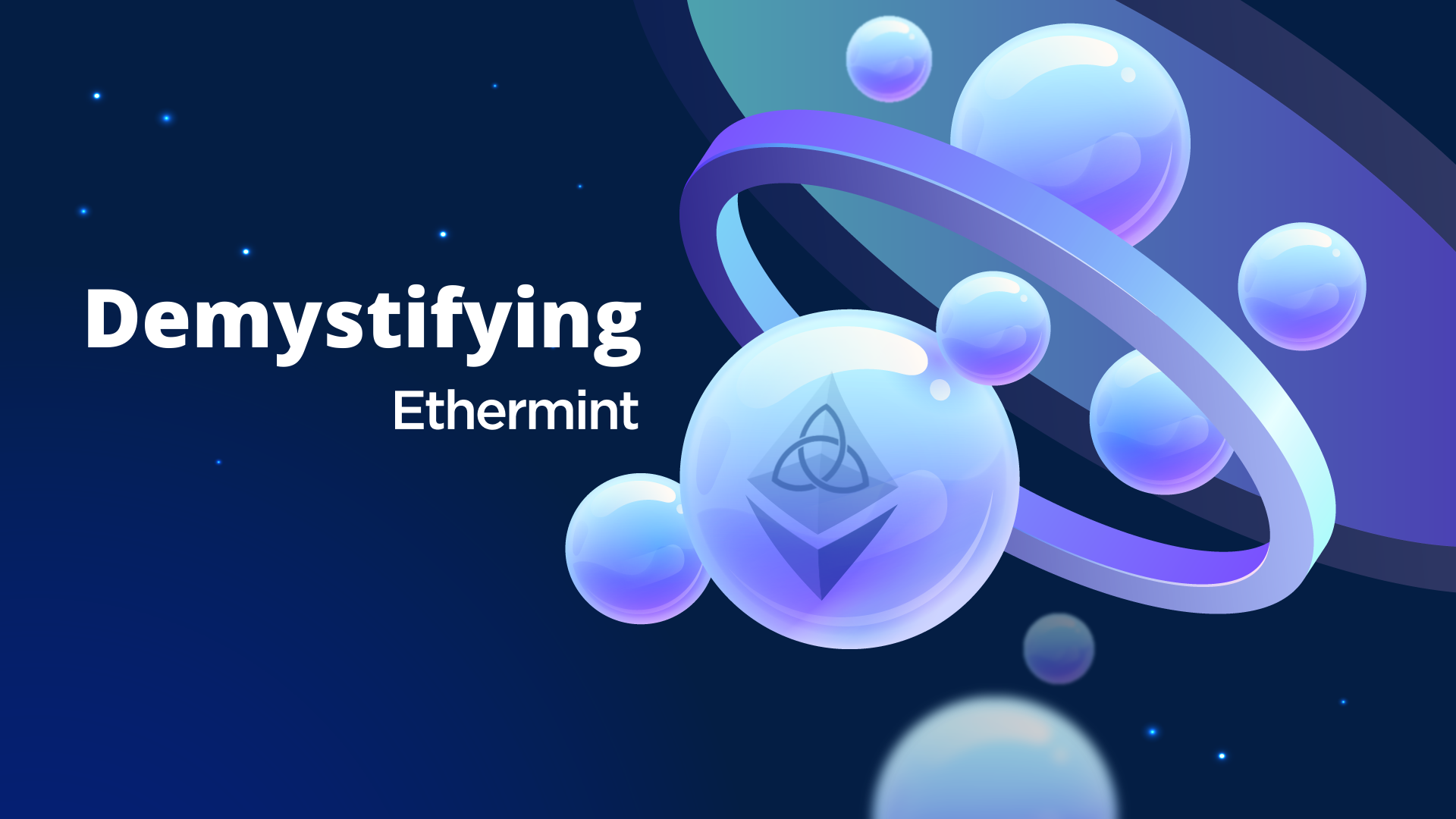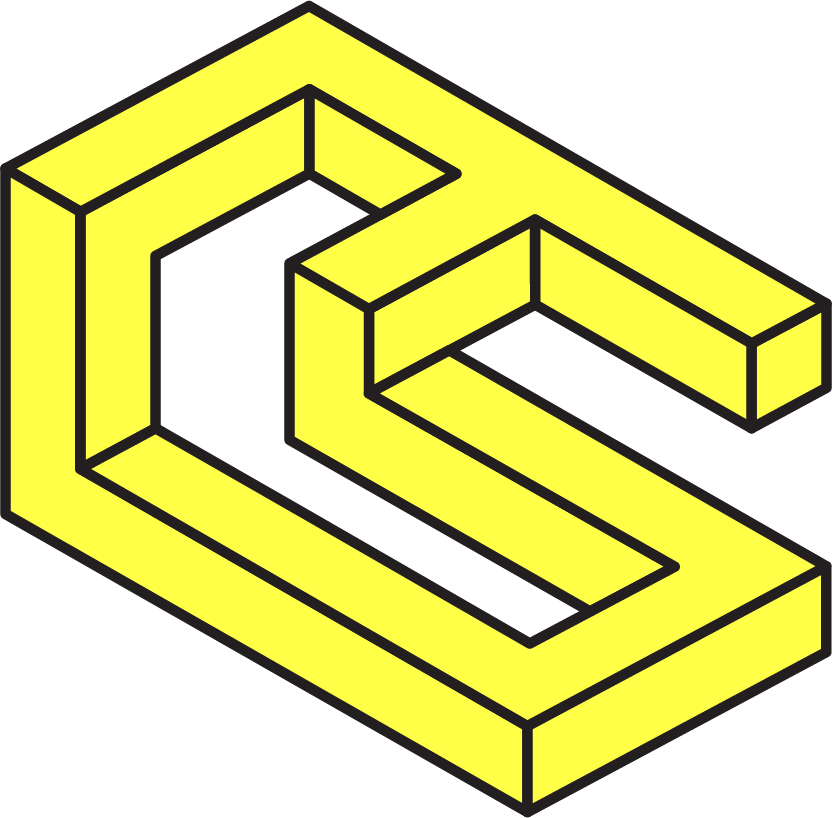Demystifying Ethermint

Authored by Lerna
What is Ethermint?
It is a portmanteau word blending Ethereum and Tendermint together. But for most people, their grasp on the project - the what, the why, and the how - stops there. In order to truly understand how Ethermint works, it's important to also understand Cosmos SDK & Tendermint. We'll explain them both throughout the article, but first let's dive into what Ethermint offers.

So You Want to Step Into Another Blockchain Universe?
Ethermint seeks to provide the capabilities of Ethereum without the bottlenecks by porting over the EVM to Cosmos using the Cosmos SDK. The Cosmos SDK is an open-source framework that allows developers to build blockchains by composing & customizing Cosmos SDK modules. Blockchains built using the Cosmos SDK use the Tendermint consensus engine.
To clarify how all the different components work together, let's backtrack: What need is Ethermint fulfilling in the first place? The simple answer is: a scalable EVM-compatible smart-contract platform on the Cosmos network. In addition to its smart contract capabilities that Ethereum developers are used to, it's also compatible with Ethereum tooling and uses Proof-of-Stake as a consensus algorithm. If you haven't heard of smart contracts before, think of them as automated versions of real contracts. First coined by the computer scientist Nick Szabo in the late 90's, smart contracts can be defined as verifiable code that is stored in a blockchain and set up to trustlessly execute specific commands.
A smart contract might be easy to grasp but what about the Cosmos SDK module? As mentioned before, the Cosmos SDK is a modular blockchain development framework. Modular is the opposite of a monolithic architecture, where the components are interdependent. With Cosmos SDK you can update, add, or remove one module without it affecting any of the others. You can develop your own modules to fulfill your application's custom needs in addition to using pre-built modules such as the governance, token transfer, or IBC (Inter-Blockchain Communication) modules functionalities.
Consensus & Cosmos
A very important component we should cover before moving forward is the consensus algorithm. There are many different types of consensus algorithms including the well-known and resource intensive Proof-of-Work (PoW). A consensus algorithm helps nodes on a distributed system come to agreement on the state of the network without having to trust any other node. There are many resources online that explain different consensus algorithms in detail but for the purpose of understanding Ethermint, we will focus on Proof-of-Stake (PoS). PoS was introduced in 2011 and it aimed at reaching consensus without the high energy consumption you get with Proof-of-Work. In Proof-of-Stake, validators are chosen through a pseudorandom election process to produce the next block. The word stake comes from the fact that you're required to lock in a certain amount of tokens into the network as your stake, which can be forfeited if undesirable behaviour is detected.
Now that we've covered the basics, where does Tendermint fit into all this? Quite simply, it's software that implements the consensus and networking components for Ethermint. Let's imagine you wanted to build your own blockchain from scratch. Inevitably you would need to build out fundamental blockchain components such as the consensus layer and the networking layer. Sounds like a lot of complex work, doesn't it? Tendermint handles both consensus & networking as an all-in-one solution to save precious development time. There is no need to reinvent the wheel! Tendermint Core, the consensus engine, is there to make sure every transaction is chronicled correctly.
Ethermint in the new world
Embracing modularity and Proof-Of-Stake, like Ethermint does, positively impacts development velocity and allows developers to launch applications that wouldn't be feasible on Ethereum. With all these elements combined, Ethermint addresses both scalability and interoperability. Thanks to low-cost fees and an uncongested network, Ethermint delivers an alternative experience for its users. As decentralized technology grows, it's becoming increasingly clear that we need products like Ethermint to help facilitate the evolution of blockchain technology. DeFi started out as a very niche industry and has now grown to a size where it piques curiosity for most people and has become a sound investment for others. In recent years, it has become apparent that the existing Ethereum infrastructure has limitations. Not only do these limitations impact the feasibility of investing in DeFi for smaller investors, they also impact what applications are practical to deploy on Ethereum.
However, we do believe that deploying on Ethermint is not taking anything away from a deployment in Ethereum. Rather, it is creating new avenues for value-add that otherwise you would not have access to. Ethermint is simply an additional layer to be used on top of Ethereum. We at ChainSafe do not believe in the narrative that to disintermediate the world through blockchain requires anyone to intermediate through a specific blockchain. This is an incredibly important distinction.
Ethermint helps address these restrictions by providing a more scalable EVM-compatible platform. We're excited to see how this benefits users, developers, and innovation as a whole! No matter your belief, the blockchain world is on course to continue gaining momentum.
Get Involved
For those curious about Ethermint, this is just a small taste of its capabilities. Check out these articles to learn more!
If you are interested in getting involved and contributing to the project, check out our Github or get in contact with one of our Ethermint team members on Chainsafe's [Discord](https://discord.gg/kbby5K4), Cosmos's Discord under #Ethermint channel or email info@chainsafe.io. We would love to know more about you, your team and your project!
Learn more about ChainSafe by visiting our website, through our Medium, via Twitter, or by visiting the ChainSafe GitHub.

